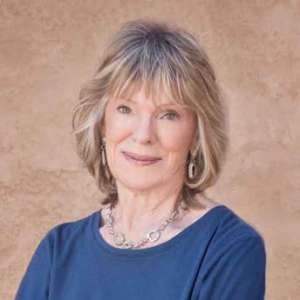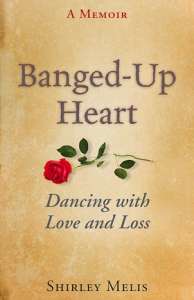
Tell us about your book.
Widowed two years, I found myself swept up into a whirlwind courtship by a younger man, a rocket scientist. Falling deeply in love, we married and started traveling as if there were no tomorrow — realizing our dreams of photography (his) and writing (mine). But little more than a year later, we were fighting for his life against a rare cancer that he had staved off for 18 years. I felt I was on a roller coaster ride unlike any I’d ever experienced. When it ended I wondered whether I could stand. And when I did stand, I wondered if and how I would live. By the end of the book, I am comfortable as a survivor, hopeful and optimistic.
Why did you want to write a book?
I didn’t start writing with the intention of writing a book. But after I showed my first 60 pages to my goddaughter, an author in her own right, who said, “Shirley, other people will want to read this,” I thought, Really? Then I’d better see to it that I go the distance and make it worthwhile.
As a writer, what is your schedule? How do you get the job done?
I consider myself a full-time writer, although my work days vary because I make time to read, practice the piano and exercise, and I’m active in local government. I also travel extensively. When at home, I usually write in the afternoons. My habit when traveling is to keep a journal, although my recordings are not always consistent. Self-imposed and external deadlines help me get the job done.

I wrote a memoir because I felt blindsided and needed to figure out what had happened to me. Often, writing helps me to see more clearly. At first I just wanted to celebrate the wonderful relationship I’d had with John. But once I got started, I became wiser, I think — more curious, more demanding. I was curious about John and his behavior toward me. Had he intentionally kept the severity of his illness a secret from me? I was determined to face the questions I had never asked him. In the end, extolling the relationship was not nearly so important as getting as close to the truth as I could.
What are your plans now your book is published?
Since my book launch at Collected Works Bookstore in Santa Fe, New Mexico, I’ve taken my book on the road with stops in Louisville, KY; Reston, Va.; and New York City. I’ve enjoyed readings/signings in independent bookstores and in the homes of friends. My next scheduled reading will be at The Book Stall in Winnetka, IL on July 8th, 3 p.m. I’ve been interviewed on TV by an NBC affiliate in Albuquerque, New Mexico and on radio, live and podcasts. I was invited to join a faculty for a Southwestern Writers conference on memoir writing in June. In my talk I discussed how I transformed my first draft into a great read. I plan to do more readings and remain open to any and all possibilities to promote my memoir, which has garnered starred reviews on Amazon.
What did you learn on your journey as an author?
I learned many things on my journey as a memoirist. Here are a few:
1) A memoir is not a beginning-to-end autobiography.
2) A memoir must be the internal as well as the visible (external) story.
3) To make a memoir come alive, a writer must use the techniques of novel writing, e.g., creating scenes, characters, dialogue.
4) Unlike fiction, a memoir requires reflection by the writer.
5) A memoirist must unpack key moments by slowing down.
What’s next for you as an author?
I have another memoir percolating.
Did your years of business and travel writing help or hinder you in writing a memoir?
In business writing, and even in travel writing, there’s a need for accuracy, clarity and a degree of balance that some call fairness. I had to use my training in objectivity to confront my story as I lived it: subjectively. I had to bring those values of clarity and accuracy to bear on expressing my deepest feelings and most intimate experiences. I had to drop the mask of objectivity to tell my own truth. “If you choose to do this, it will be transformative,” editor Morgan Farley said. I wondered how I would be transformed. All I could think of was butterflies and how they come from larvae in some hidden, mysterious process. It was bit scary but more than that — inspiring.
Did you find the writing therapeutic?
Yes, in a real sense. I don’t think I can say it saved my life — that may be too strong — but it helped me keep moving. I came away with a much more nuanced and complex understanding of John — who he was in himself and in his relationship with me. Just to be to see that took me out of the blinding intensity of feelings that overwhelmed me at times. I saw eventually that I was not going to try to carry out his unfulfilled dreams. I couldn’t. I needed to have dreams of my own. I took to heart his motto: “Life interferes with plans, but it’s important to have plans.” I was comfortable, finally, with myself as a survivor. and that allowed me to step out of the cocoon of grief and find joy in just being alive.
Do you have any advice for people who might be thinking of writing a memoir?
Be careful what you wish for. It’s tough. To write a memoir, you have to have a lot of perseverance — to get at the truth — and courage to express it, letting the chips fall where they may.
Links
Author Site
Twitter
Amazon
Goodreads
Get an Editorial Review | Get Amazon Sales & Reviews | Get Edited | Get Beta Readers | Enter the SPR Book Awards | Other Marketing Services






















Leave A Comment